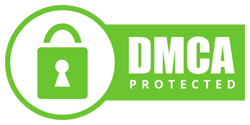Is Charcoal Toothpaste Safe to Use? Activated Charcoal: Secret or Scam?
GOOGLE AD
If you are
an active netizen you all must have seen various products which contain
charcoal. Many face masks, face washes and toothpastes are incorporated with
activated charcoal.
Charcoal might not look like something you can use on your face or put inside your mouth, majorly due to its colour and also it does not have a specific taste.
Charcoal might not look like something you can use on your face or put inside your mouth, majorly due to its colour and also it does not have a specific taste.
But many of
you might know activated charcoal is the buzzy health ingredient of
the moment, showing up in everything from supplements
to pressed juices to beauty products. And now, it has also made its
way to the oral care aisle, which claims to clean and whiten teeth and
eliminate bad breath.
Soak up
You may not
know this but activated charcoal has been used on the body for thousands of
years. You all must have studied in your science class, in school, that
charcoal is a good adsorbent. Because it's so porous, activated charcoal is
sometimes used in emergency rooms to treat certain kinds of poisoning and
overdose—by "soaking up" the poison, charcoal prevents it from
being absorbed into the stomach. By this logic, some people believe activated
charcoal can also be used to soak up toxins in the body or in
this case, stains on the teeth.
Questions?
As the whole
world raves about it, you might wanna use it for yourself too. But is it a good
idea to use toothpastes that contain activated charcoal? And will
the ingredient really whiten and "detox" teeth? Is it really
safe and effective? Or are there any side effects to it? And finally, is it
even necessary?
Answer:
Activated
charcoal is a rebirth of ancient medicine techniques. In ancient times, people
used to use ash to clean teeth. In theory, the black sludge binds to everything
in its path-stains, tartar, bacteria and viruses (and maybe even your tonsils).
As it takes tartar off the teeth, your teeth will get whiter, which is a
positive sign, of course, but it may also bind to medications that the body
needs to absorb and even bacteria that you need for digestion. And
additionally, it just might not work.
What’s a big risk?
A big risk
is that non-activated charcoal is extremely dangerous and there isn't proof
that all manufacturers are using the correct type of charcoal. The safest way
to whiten your teeth is by using a well-tested product. You don’t want to lose
the enamel of your teeth and make them weak and sensitive.
What to know before you try charcoal toothpaste?
GOOGLE AD
If you do
decide to use activated charcoal toothpaste, dentists agree that you
should do so cautiously and sparingly. Avoid brushing your teeth with charcoal
toothpaste daily. Even if it feels totally normal this shouldn't be practiced
for longer periods of time. Brush with it no more than once every other
week.
It's an
abrasive ingredient and frequent use could damage the enamel on your teeth.
That's why certain people should avoid activated charcoal toothpaste
altogether.
If you have a lot of recession of gum tissue, the roots of the teeth may become sensitive as a result of roughness of the charcoal toothpastes.
If you have a lot of recession of gum tissue, the roots of the teeth may become sensitive as a result of roughness of the charcoal toothpastes.
Remember
If you
experience symptoms like raw or bleeding gums and an increase in sensitivity,
stop using charcoal toothpaste right away and make an appointment
with your dentist. This may be caused due to wear and tear of enamel of
your teeth
When you lose
enamel, teeth get sensitive and darker in colour because you’re close to the
part of the tooth that has the depth of the colour. So instead of whitening the
toothpaste can be a reason of darkening of teeth and causing permanent damage
to dental cavity. Since you can’t grow it back, the only thing you can do is,
cover it up with restoration.
So don’t let
craze for whiteness take a toll on your already beautiful and healthy smile.





No comments